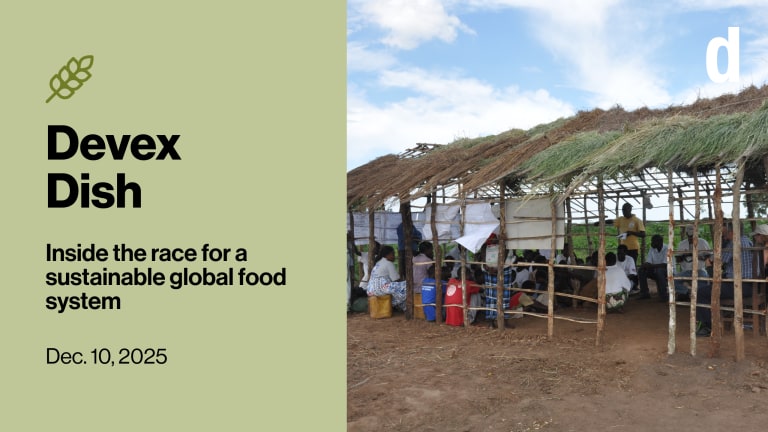
United Nations Secretary-General António Guterres said Friday that he has been in “intense contact” with parties working to get much-needed grain exports out of Ukraine and to a global market reeling from skyrocketing prices, but that no deal has yet been struck.
Get the inside track on how agriculture, nutrition, sustainability, and more are intersecting to remake the global food system in this weekly newsletter.
“The secretary-general of the U.N. Conference on Trade and Development, Rebeca Grynspan, and my humanitarian chief, Martin Griffiths, are continuing the talks, aiming to achieve a package deal that will enable Ukraine to export food not only by land but through the Black Sea and will bring Russian food and fertilizer to world markets without restrictions,” Guterres told ministers and other U.N. officials at a global meeting on food security, which was hosted by Germany ahead of a summit of leaders from the G-7 group of nations that is set for next week.
“I will not go into details because public statements could hinder success in the talks that are taking place,” Guterres said.
Grain from Ukraine, which exported 10% of the world’s wheat in 2021, has been trapped in silos because invading Russian forces are not allowing it to be shipped from ports in the Black Sea.
Guterres called the coming global hunger crisis “unprecedented,” and urged action to bring down global prices, increase availability of vital inputs such as fertilizer for farmers, and expand access to financing for debt-ridden governments without the resources to contend with rising costs of food and fuel.
”There is a real risk that multiple famines will be declared in 2022,” Guterres said. “And 2023 could be even worse.”
According to the World Food Programme, 193 million people were acutely food-insecure in 2021, with the World Bank predicting that an additional 40 million people will go hungry because of Russia’s invasion of Ukraine.
In addition to other U.N. officials — from organizations such as WFP, UNICEF, the Food and Agriculture Organization, and the International Fund for Agricultural Development — foreign, agriculture, and development ministers participated in the hourslong ministerial meeting in Berlin. It was split into three sessions: immediate humanitarian needs and diplomatic response; coordination through the Global Alliance for Food Security; and the longer-term agenda for resilient food and agriculture systems.
The meeting built on a ministerial conference hosted by the United States last month at the U.N. in New York, which U.S. Secretary of State Antony Blinken said led to the development of “a global roadmap that commits countries to taking swift, concrete steps to get food to people around the world who need it now, and to build greater resilience to future shocks.”
According to the U.S. State Department, nearly 100 countries have endorsed the “Roadmap for Global Food Security–Call to Action,” which outlines seven actions for mitigating the worst effects of food insecurity. Those include making new humanitarian pledges, providing in-kind donations to humanitarian organizations, avoiding export bans, temporarily increasing fertilizer production, building resilience in food systems, increasing research of climate-resilient agricultural innovations, and monitoring markets that affect food systems.
Friday’s ministerial meeting included few new commitments, with many governments summarizing financial pledges that had already been made. Many also rejected the notion that Western sanctions imposed on Russia were restricting global supply by making it illegal to purchase Russian food and fertilizer.
“When we imposed sanctions on Russia so that it would end its aggression against Ukraine as quickly as possible, we deliberately created exceptions for agricultural goods, for fertilizer, for insurance, and shipping necessary to move these products precisely to avoid worsening the food crisis,” Blinken said. “Nothing … is preventing food and fertilizer from leaving Russia, and only one country is blocking food and fertilizer from leaving Ukraine, and that is Russia.”
A “chair’s conclusion” released after the event by the German Federal Foreign Office said that the Global Alliance for Food Security, established last month by G-7 countries and the World Bank, “will help to ensure a cohesive international response to the food security crisis and follow up on commitments made by Global Alliance participants.”
Svenja Schulze, German minister for economic cooperation and development, said the aim is to “avert the worst famine since the end of the Second World War and to make structural changes that will prevent a repeat of the suffering in the future.”









